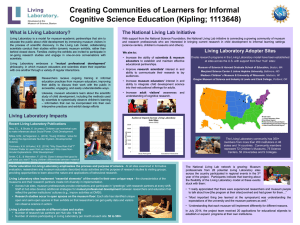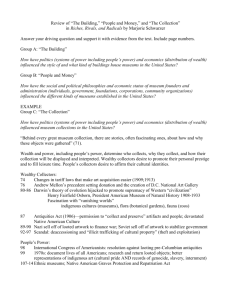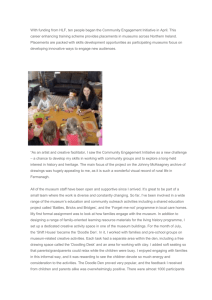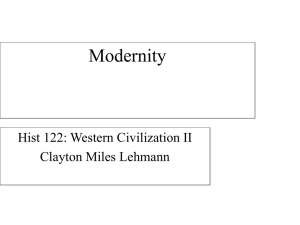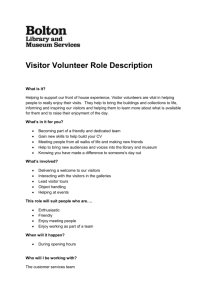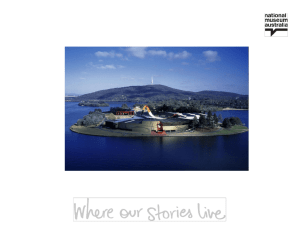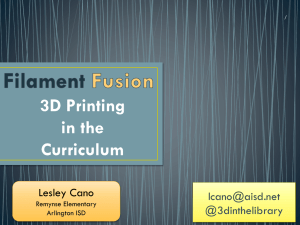Museum-based Art Psychotherapy Group for Young Adults
advertisement
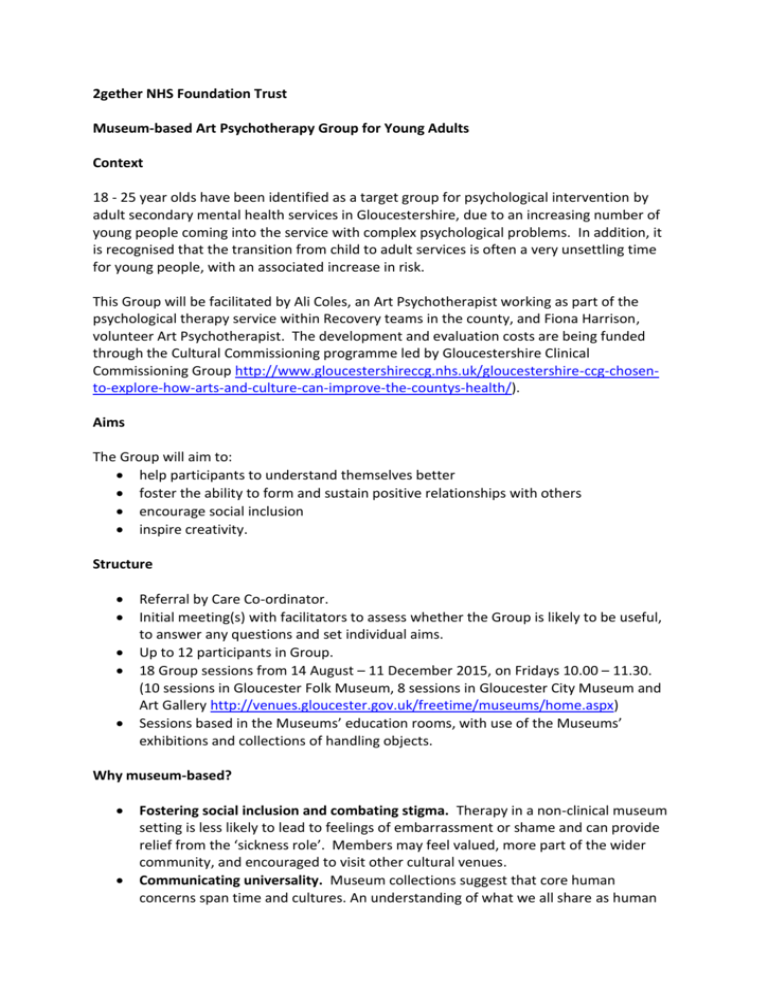
2gether NHS Foundation Trust Museum-based Art Psychotherapy Group for Young Adults Context 18 - 25 year olds have been identified as a target group for psychological intervention by adult secondary mental health services in Gloucestershire, due to an increasing number of young people coming into the service with complex psychological problems. In addition, it is recognised that the transition from child to adult services is often a very unsettling time for young people, with an associated increase in risk. This Group will be facilitated by Ali Coles, an Art Psychotherapist working as part of the psychological therapy service within Recovery teams in the county, and Fiona Harrison, volunteer Art Psychotherapist. The development and evaluation costs are being funded through the Cultural Commissioning programme led by Gloucestershire Clinical Commissioning Group http://www.gloucestershireccg.nhs.uk/gloucestershire-ccg-chosento-explore-how-arts-and-culture-can-improve-the-countys-health/). Aims The Group will aim to: help participants to understand themselves better foster the ability to form and sustain positive relationships with others encourage social inclusion inspire creativity. Structure Referral by Care Co-ordinator. Initial meeting(s) with facilitators to assess whether the Group is likely to be useful, to answer any questions and set individual aims. Up to 12 participants in Group. 18 Group sessions from 14 August – 11 December 2015, on Fridays 10.00 – 11.30. (10 sessions in Gloucester Folk Museum, 8 sessions in Gloucester City Museum and Art Gallery http://venues.gloucester.gov.uk/freetime/museums/home.aspx) Sessions based in the Museums’ education rooms, with use of the Museums’ exhibitions and collections of handling objects. Why museum-based? Fostering social inclusion and combating stigma. Therapy in a non-clinical museum setting is less likely to lead to feelings of embarrassment or shame and can provide relief from the ‘sickness role’. Members may feel valued, more part of the wider community, and encouraged to visit other cultural venues. Communicating universality. Museum collections suggest that core human concerns span time and cultures. An understanding of what we all share as human beings can encourage the members of the Group to communicate their own difficulties, thoughts and emotions. Facilitating self-exploration. Research shows that people project inner thoughts and feelings onto museum objects and this can feel like a safe way for people to start to engage with their emotions and personal stories. Group members can also learn more about themselves through reflecting on how they experience the overall museum environment (eg their preferred way of exploring the physical space and the collections, and their response to the museum as a public institution). Encouraging a sense of containment: Museums are safe, orderly places for looking after objects. Visiting the museum between sessions may allow further reflection and processing. Inspiring creativity. Museum objects can elicit reflective creative expressions from those who might otherwise find it hard to do so. In particular, the multi-sensory aspect of handling museum objects can be a powerful stimulus to creativity. Evaluation Psychlops (service-user centred measure of problems/function/wellbeing http://www.psychlops.org.uk/) UCL Museum Wellbeing Measure (Younger Adult – measures psychological wellbeing benefits of museum activities http://www.ucl.ac.uk/museums/research/touch/museumwellbeingmeasures/wellbe ing-measures/UCL_Museum_Wellbeing_Measures_Toolkit_Sept2013.pdf) Rosenberg Self-Esteem Scale Structured reflective interview post-Group Feedback from Care Co-ordinators Facilitators’ reflective diaries. For more information please contact Ali Coles – ali.coles@glos.nhs.uk June 2015
